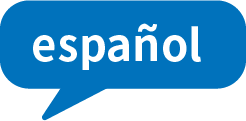Clackamas County is developing a recovery center campus for individuals struggling with substance use disorder. The future campus site is 15301 SE 92nd Ave. in Clackamas, which the Board of County Commissioners approved purchasing in October 2024 (materials).
A recovery center is a facility or campus dedicated to providing a full continuum of services and supports to help people successfully return to the community. The creation of such a center was a key recommendation coming out of the Clackamas Addictions Recovery Summit, and is a key component of the county's recovery-oriented system of care.
Clackamas County understands there will be concerns about a facility like this for any surrounding area, and we will work with the community throughout the development process. We are committed to doing the hard work on behalf of those in need, their families, and their communities who want a thriving Clackamas County.
Stories of Recovery
Rachelle
Rachelle opens up about her battle with substance use disorder from an early age, experiences on the street and in jail, getting clean, and what a recovery center would have meant to her in her time of need. Rachelle now helps other people suffering with addiction.
Bo
Bo discusses his battles with substance use disorder, his experiences in-and-out of jail, getting clean to give back to his community, and what a recovery center would mean for others. Bo now helps other people suffering with addiction.
Sarah
Sarah discusses her battle with substance use disorder from an early age, her experiences in-and-out of both jails and various treatment programs, getting clean, and what a recovery center would mean for others. Sarah now helps other people suffering with addiction.
FAQ
The following Q-and-A was created in response to the many excellent questions, concerns, and comments brought up by neighbors at the recovery center community meeting held at the former Clackamas Elementary School property (15301 SE 92nd Ave. in Clackamas) on July 25, 2024. Clackamas County officials pledged to respond to issues raised.
We want to thank everyone who attended the meeting – neighbors, businesses, organizations and individuals in recovery.
Good Neighbor Group
Clackamas County has formed a Good Neighbor Group that includes residents and businesses in the immediate/surrounding area, along with individuals in recovery. This representative group will help establish a Good Neighbor Agreement between the county/provider and the neighborhood. Such an agreement will outline provider and neighbor commitments. The meetings, held over Zoom, are open to the public.
| Dec. 3, 2024 | Good Neighbor Group Meeting #1 minutes | video |
Resources
| April 10, 2025 | Media release: Fora Health selected as provider for recovery center |
| April 10, 2025 | Business Meeting Packet | Video |
| April 1, 2025 | Issues & Updates Packet | Video |
| Feb. 11, 2025 | Policy Session Packet | Video |
| Dec. 11, 2024 | Policy session: Recovery Center Monthly Update Packet | Video |
| Nov. 7, 2024 | Policy Session: Recovery Center Update Packet | Video |
| Oct. 17, 2024 | County addresses homelessness, addiction crises by purchasing site for recovery center Video | Memo #1 | Memo #2 |
| Oct. 15, 2024 | Issues and Updates Approval of a Purchase and Sale Intergovernmental Agreement with the North Clackamas Parks and Recreation District for the purchase of the property at 15301 SE 92nd Avenue, Clackamas. Memo |
| Sept. 10, 2024 | Issues and Updates Video |
| June 25, 2024 | Board of County Commissioners shows interest in purchasing site for recovery center |
| June 25, 2024 | Issues and Updates Video | Memo |
| April 15, 2024 | Commissioners advance Recovery Center |
| April 10, 2024 | Policy Session – Recovery Oriented Service Center Data Update Video | Packet |
| Oct. 31, 2023 | Board receives expert recommendations to address addictions crisis |
| Oct. 31, 2023 | Issues and Updates Video | Memo |
| Sept. 2023 | Clackamas Additions Recovery Summit |
 Translate
Translate






